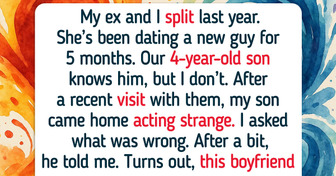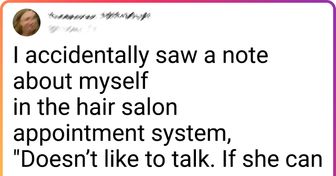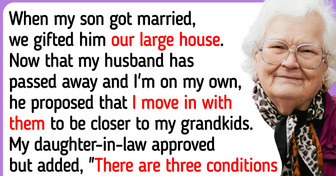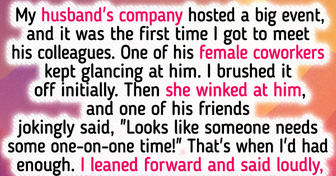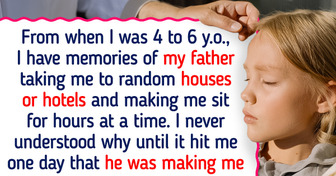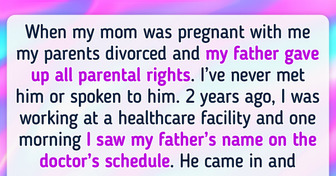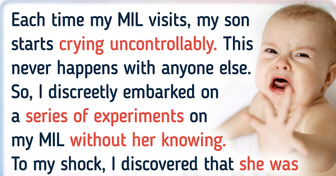I’m Refusing to Allow My Daughter’s Biological Mom to Meet Her

Yeah, yeah, I know, we’ve all heard that there are many reasons why falling asleep in front of our TV screens might not be the best thing to do if you wanna get a good night’s sleep. But it turns out, it’s not all that bad. Some experts suggest there may even be some advantages to dozing off while watching your favorite TV show.
For instance, if you don’t turn up the TV too loudly, those noises in the background may help you fall asleep faster. Think of your TV as a white noise machine. If you’ve done some research on ways to improve your sleep, you’ve surely heard of white noise before. It is like the sound of the wind blowing or the rain falling.
It’s a mixture of different sounds at different frequencies, all happening at the same time. Sometimes these types of sounds are used by people to help them sleep, block out other sounds or concentrate better on their tasks. If the volume on your TV is low enough — meaning you’re not able to understand the dialogue precisely, it might help if you have problems falling asleep.

Moving on, our TVs emit less blue light than other devices. In other words, if you choose between scrolling through your phone or watching an old movie, you’re better off with the second option. Exposing ourselves to blue light close to bedtime can affect our circadian rhythm. This is a natural, internal process of a lot of living organisms.
It’s like our body’s activity monitor, letting us know our schedules for falling asleep and waking up in the morning. It also helps to synchronize our bodies with the environment and the amount of light we’re exposed to during the day. Too much blue light later at night tricks the body into thinking it’s still bright and early — and there may be things to do, so it keeps your brain alert.
If you’re one of those people that finds it hard to fall asleep in pitch-black darkness and complete silence, it might help you to re-watch some old movies. Especially ones you’ve seen many times in the past. When we have a bad day, we often turn to TV shows or movies that make us feel better. And there’s a real, scientific reason for this — a study found that watching familiar stories can help us feel better and have better control of our emotions.
If you need to sleep with the TV on, it’s okay, but it’s important to choose wisely. Pick shows or movies that you know well and that are calm, instead of action movies or news channels. You can also set a timer for your TV to turn off after you fall asleep, which will reduce the amount of blue light you get at night and reduce its bad impact on the quality of your sleep.
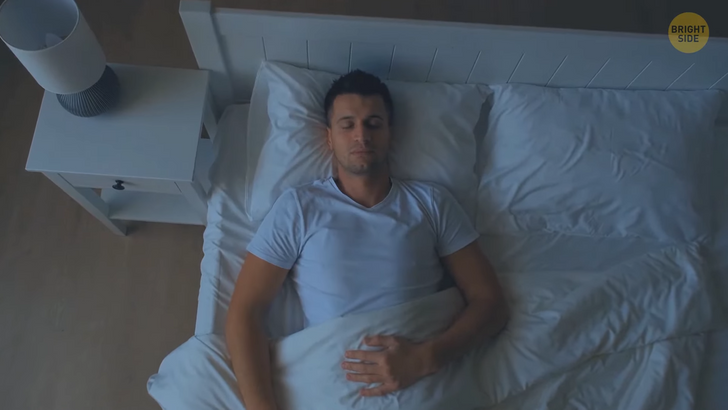
Let’s say you’ve only recently discovered your passion for snoozefest in front of the TV. Well, it may be a sign of aging. Recent studies have shown that as we grow older, we tend to choose comfort over style or practicality. So, it’s no wonder some people just start falling asleep on their living room couch at some point in their life. It’s more comfortable and involves less of that complicated bedtime routine. That doesn’t make it healthy, though.
You might wonder, though, why watching TV makes you sleepy. Many people say that when they watch TV before bed, they fall asleep before the show or movie even starts! Doesn’t that mean watching TV is actually helping us sleep, not making it harder? The answer is a bit more complex. The reason why some people fall asleep instantly once they turn on the TV is that our brains make special waves called alpha waves when we watch something on the screen.
Let’s see what these waves are. For starters, your brain is always busy with electrical activity. This happens because the cells in your brain called neurons talk to each other using electricity. When some neurons send an electrical signal to other neurons, we call them brain waves. Why waves? Because when scientists use a special test called an electroencephalogram showing the electrical activity in your brain, it all looks like waves!
There are five different types of brain waves that go from slow to fast. Alpha waves are right in the middle. Your brain makes these waves when you are awake but not focusing on anything in particular. They help us relax and feel dreamy. When watching TV, it’s partly because of the pictures we see on the screen.

Remember though, it’s important not to rely too much on watching TV before bed. If you always watch something before sleeping, it can be hard to fall asleep without it, even if you are in a place where you can’t watch it, like during a power failure or when camping. To avoid relying too much on the TV, you can gradually watch less and find other ways to relax before bed like reading or meditating.
Having different ways to help you sleep will make it easier to doze off no matter where you are. Thankfully, there are things you can try if you can’t fall asleep without a TV. You’ll just have to test them out to see what works best for you, but it may take some time. For example, some people have a personal sleep diary where they can write about things that help them fall asleep.
But if you really need some background noise to fall asleep, you can try ASMR channels on YouTube. These channels usually have calming scenes with relaxing sounds like a crackling fire or soft rain. There are different ASMR channels to choose from, some even have sounds and scenes from popular TV shows or movies. You won’t have to worry about getting too involved in a story and not being able to fall asleep. If you have a smart TV that can play YouTube as well, you can turn off the screen TV and just listen to the sounds.
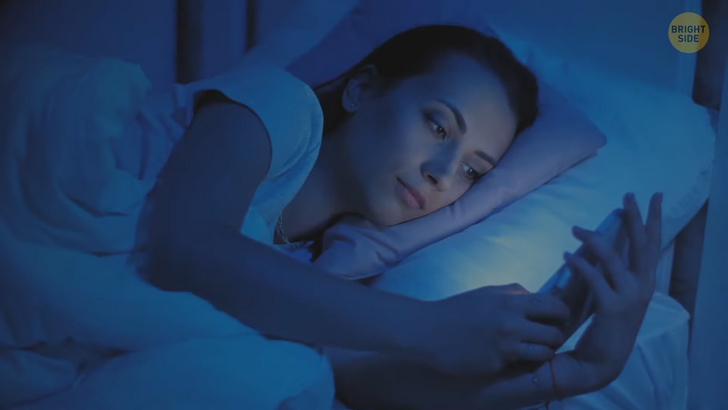
Your phone might be useful too, just not in the way you’d expect. If you want white noise but don’t want to watch TV, there are apps you can install on your phone that can help. These apps have different sounds like falling snow, thunder, or birds chirping.
Some apps can turn off by themselves, so you can sleep without worrying about them draining your phone all night long. Be careful when choosing an app because some of them may be pricey, and you may be charged for extra features. If possible, try some app with free sounds first to see if it’s good for your sleeping needs.
Here’s quite a retro alternative to the soothing noise of a TV: radio! It can be a good way to help you sleep by listening to different sounds. Some people might like talk radio, while others prefer classical music. With online radio, you can listen to many different things on different devices.
Try listening to different types of shows at bedtime and see how they make you feel. If the show is too interesting, it may not be the best choice for sleep. Try listening to the radio a few times to see if it works for you. Some radio stations have fewer ads if you’re willing to pay a fee.
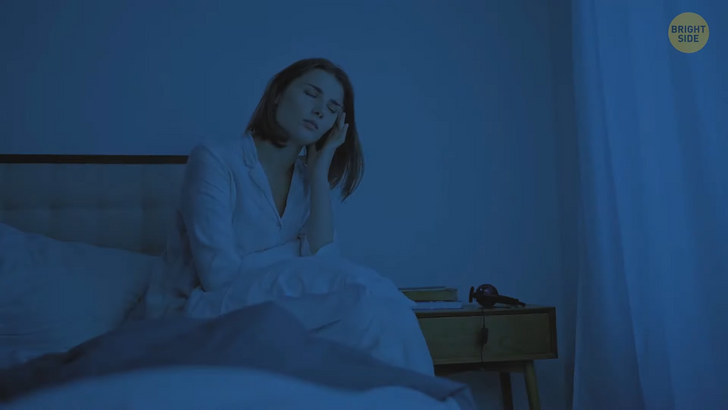
Fans are also considered a helpful background noise that makes it easier for many people to fall asleep. Sure, some people prefer silence when they go to bed, but others find it helpful to have a low hum like a fan to block out other sounds like someone moving around at night or a neighbor starting their car early in the morning.
Using a fan can also help keep the room cool. For good sleep, the temperature in your bedroom should be around 65 degrees Fahrenheit. Some people might like it a little warmer or cooler, but most doctors say that 60 to 67 degrees Fahrenheit is a good range for a comfortable sleep. If your house doesn’t have air conditioning, a fan can be a useful tool to control the temperature too.

